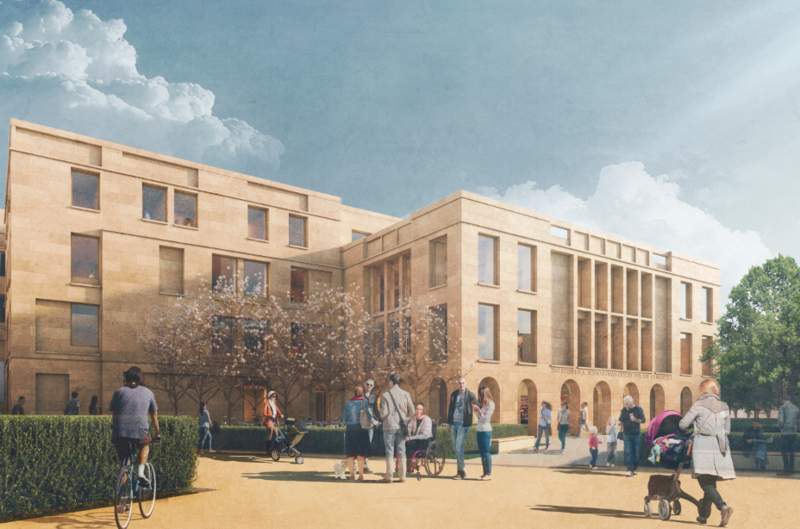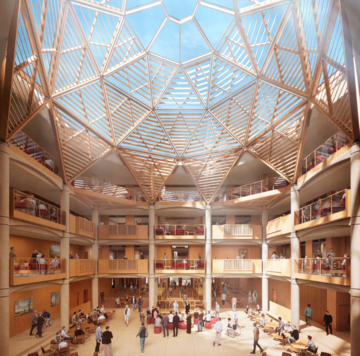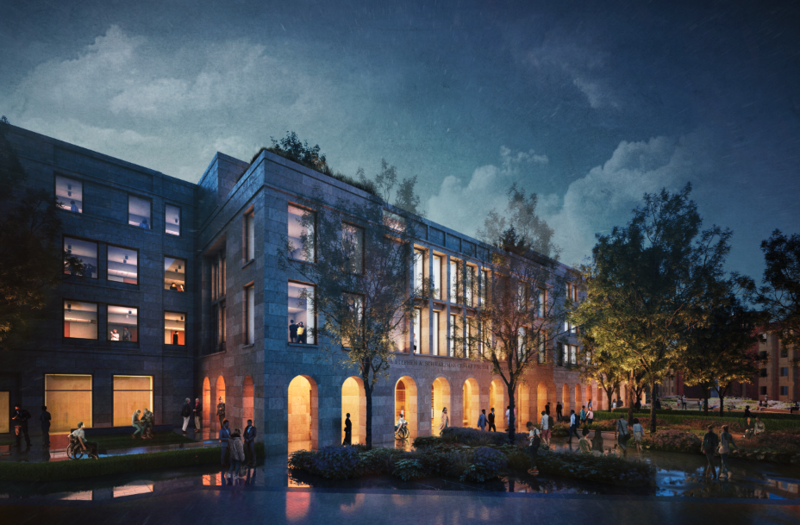OXFORD UNIVERSITY SUBMITS PLANNING APPLICATION FOR NEW HUMANITIES BUILDING

OXFORD UNIVERSITY SUBMITS PLANNING APPLICATION FOR NEW HUMANITIES BUILDING
A planning application for Oxford University’s Stephen A. Schwarzman Centre for the Humanities has been submitted to Oxford City Council
Published: 17 November 2021
Share this article
The full application is now available on the City Council's online planning portal.
The University held two public consultations – in November/December 2020 and June/July 2021 – to gather feedback on the initial proposals. More than 125 responses were received from local stakeholder groups including heritage and residents’ groups and individual respondents. The plans were covered in the Oxford Mail, BBC Oxford and BBC South Today, and more than 3,000 people in Oxfordshire viewed them on the Centre’s website.

More images of the Centre are now available in the planning submission. They show the impressive entrances to the building, the striking concert hall and the proposed green spaces that will surround the Centre in Oxford University’s Radcliffe Observatory Quarter. The building has been designed by Hopkins Architects.
Professor William Whyte, Professor of Architectural History at the University of Oxford, said: “We are grateful to the people of Oxford who gave feedback on our initial proposals and we are delighted to submit our final designs for planning permission. The Stephen A. Schwarzman Centre for the Humanities will transform the work of our scholars and offer untold opportunities for the city as a whole. An inspirational piece of design by a world-leading architectural practice, it will also be a pioneering example of sustainability in architecture.”
A recurring theme in the discussions around the public consultation was how the Centre would benefit the city of Oxford. The planning application outlines many of these benefits, including:
- Major new performances venues, including a 500-seat concert hall, a 250-seat theatre and a 100-seat Black Box lab for experimental performance. Local cultural organisations will be invited to perform in these spaces through existing and new partnerships with Oxford researchers.
- Exhibitions, lectures and performances which bring Oxford’s research to wide audiences.
- A schools and public engagement centre to bring school children in Oxfordshire into contact with Humanities research and researchers.
- New access routes and landscaping which opens up and connects the Radcliffe Observatory Quarter and the surrounding area.
- A café and other meeting spaces which are open to the public and accessible without having to pass through a security barrier.
Environmental sustainability was another theme raised in the responses to the consultation. The Centre has ambitious sustainability objectives for its design, construction and operation. It will be a highly energy efficient building designed according to Passivhaus principles. It will include:
- Very high levels of insulation to reduce the heat needed in the building.
- More biodiversity on the site than existed before, with planting that appeals to wildlife and options for bird boxes.
- New planting, landscaping and green spaces.
- Cycle parking and encouragement for visitors to take public transport, with no new parking spaces other than for disabled users.
- Solar power generation on the roof.
- This will be an all-electric building, with heat pumps rather than boilers.

The Centre will boost teaching and research in the humanities at Oxford and provide them with a new home which brings together seven faculties, a new Institute for Ethics in AI, the Oxford Internet Institute, and a new library. It has been made possible by a £150 million gift to the University from Stephen A. Schwarzman, CEO and Co-founder of Blackstone, one of the world's leading investment firms.
The City Council will consider the application after a 13-week consultation period, and will make their decision in spring 2022. If consent is given, the University aims to complete construction in 2025.
Discover more about The Schwarzman Centre for the Humanities at https://www.schwarzmancentre.ox.ac.uk/















